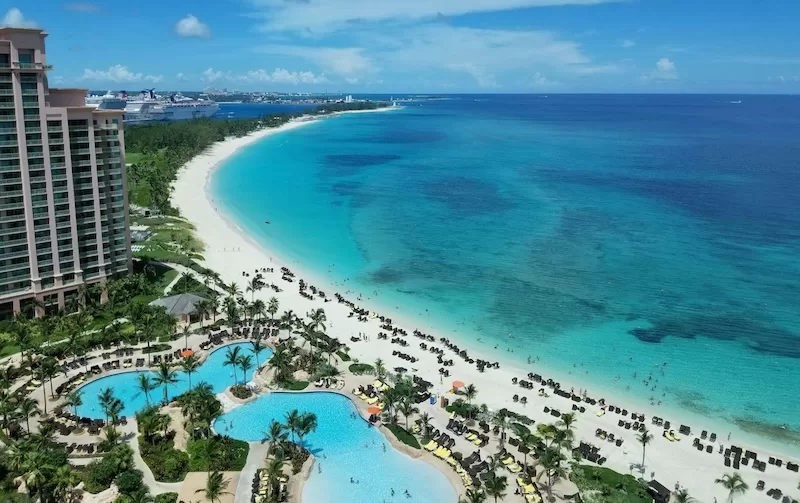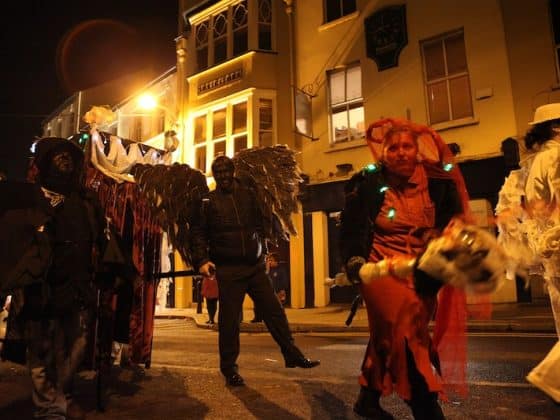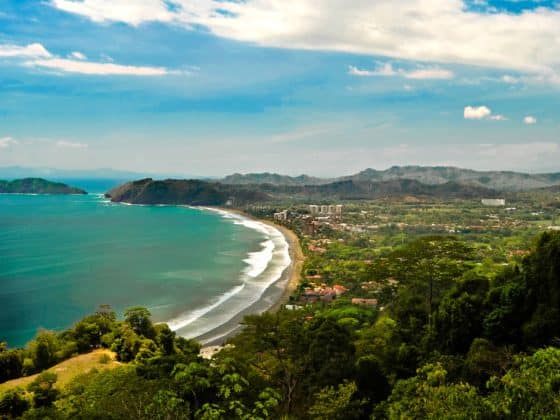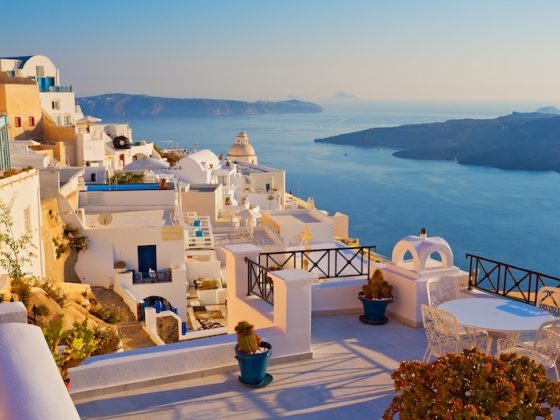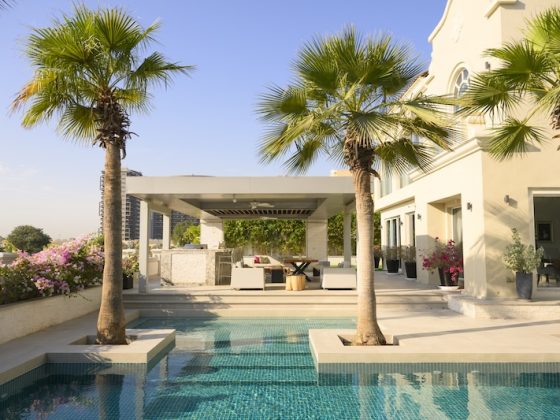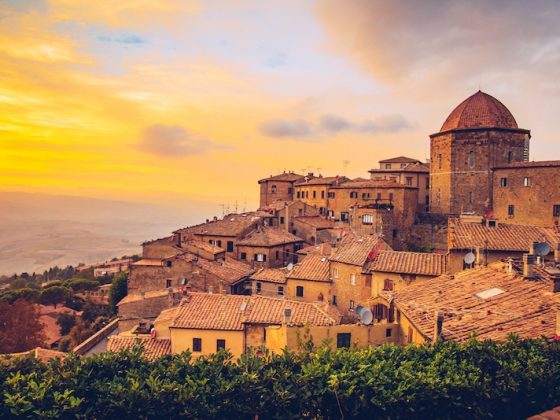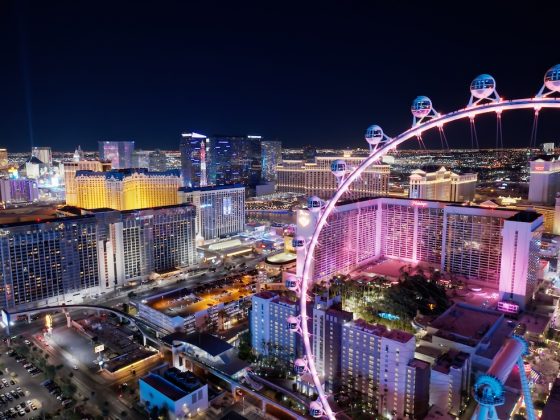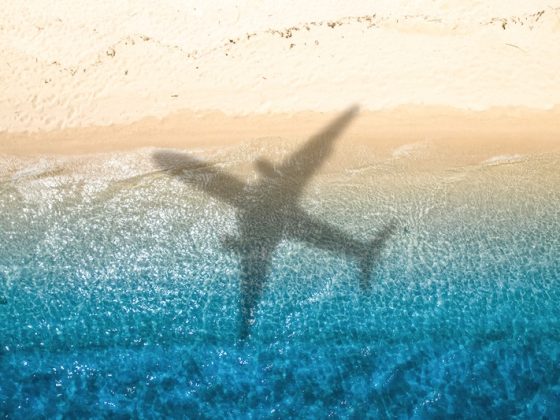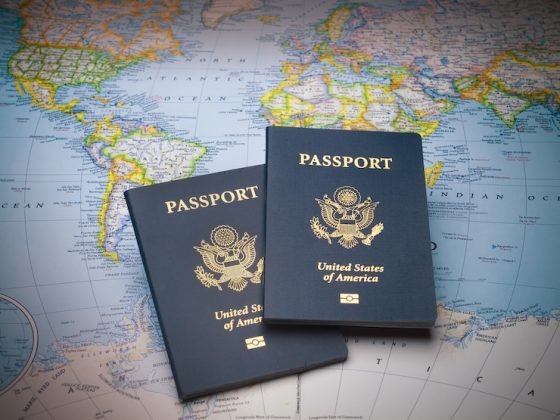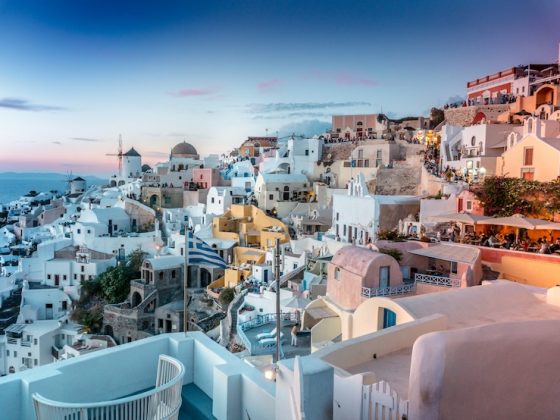Introduction
The thought of retiring in the Bahamas can be irresistible. Let’s face it, who wouldn’t want to start a new chapter in an idyllic paradise? Salt on skin. Market stalls full of fruit picked that morning. A sea warm enough to float in for hours. That dream stays vivid because it captures what many people want in retirement: time that feels like it finally belongs to them.
But choosing the Bahamas as a permanent place to slow down takes more than craving ocean views. It means understanding how daily life works once the vacation glow fades into routine. The islands ask for financial planning that accounts for imported goods. They reward those who learn the residency system early. They greet newcomers with sunshine and also with the need to adapt to tropical realities, busy hurricane seasons and long lines at grocery stores after a delayed supply boat.
At the same time, the Bahamas offers rare advantages that give retirees room to breathe. The English language simplifies daily logistics. Little to no personal income tax removes a common source of stress. Walking barefoot on pale sand before breakfast becomes a habit, not a holiday treat.
The goal here is to guide you into this new setting with both eyes open. From costs and healthcare to housing choices and strong social vibes, this article unpacks the essential steps for retiring in the Bahamas so the dream and the plan can move forward together.
Why Consider Retiring in the Bahamas
Tax and financial perks you’ll notice
One of the most tangible benefits of retiring in the Bahamas is the remarkable tax environment. For a retiree whose income comes from overseas pensions or investments, fretting about local personal income tax, capital-gains tax or inheritance tax doesn’t figure in. The Bahamas imposes no personal income tax, no capital gains tax and no wealth inheritance tax. Think of it as trading the paperwork stress of tax filings for simpler living, which leaves more of your nest-egg working on your beach hammock rather than in bureaucracy.
Language, culture and ease of adaptation
When relocating for retirement, the barrier of language, local customs or legal translation can derail a dream. In the Bahamas the official language is English, so daily errands, doctor appointments, banking and chats with neighbors proceed without a translator. It’s like switching from a smartphone in a foreign language into one already set in your preferred interface. Everything just works more fluidly.
Diverse lifestyle choices
Maybe you thrive on community events, reef snorkeling, sunsets from a kayak or a quiet house with only gulls and waves for company. Whatever your preference, Bahamas offers a range of islands and communities to match. On the one hand there is the hubbub of Nassau or Freeport; on the other hand islands like Eleuthera and the Exumas offer a slower beat. That means retiring in the Bahamas can be less of a one-size-fits-all model and more a tailored chapter: you pick the cast and pace.
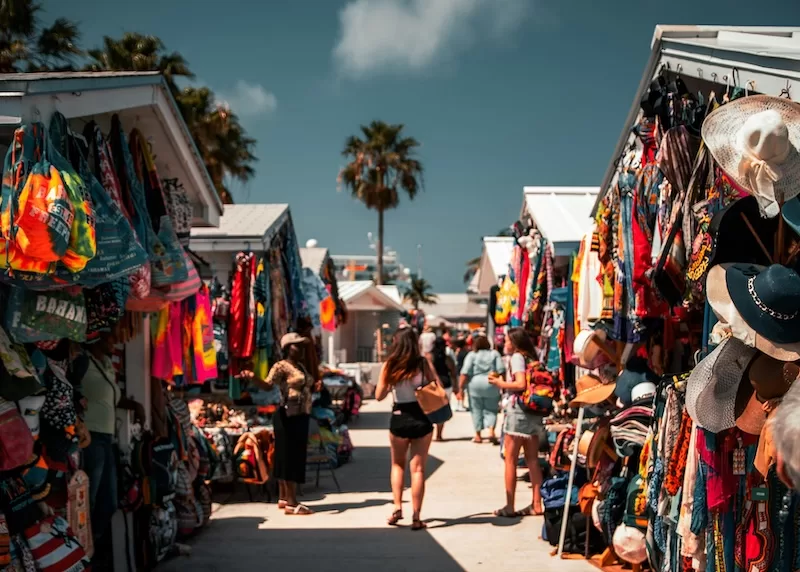
Natural setting and proximity to home-base
Geography helps. The Bahamas encompass around 700 islands and 2,400 reefs stretching in a chain just off the Florida coast. From many North American or European bases, the flight time is shorter than to many other “far-away” utopias. That makes visiting friends or returning for medical check-ups more feasible. Plus, you live near the sea, the sound of waves becomes ambient, and nature becomes your calendar. There is a lived-in comfort in that.
Ownership rights and property access
Many retirees worry: “If I buy over there, will I have the rights, or will I feel like a guest?” In the Bahamas foreign property ownership is permitted and there are defined residence routes. That fact alone gives a sense of belonging, not renting forever. If you invest in a home, you feel anchored. Real estate often becomes part of the story, not just the backdrop.
Established expat networks and social layers
Retiring in a new country without people you can relate to is hard. The Bahamian islands already host communities of expatriates and retirees who have gone through the transition. That means shared experiences, practical local wisdom, and more ‘been-there’ conversations than ‘tourist hype’.
It helps when the little particularities of local life (fixing the roof after storm season, remembering the ferry delay, getting used to slower service) is less a surprise and more an accepted part of your daily flow.
High living standard in many areas
Even though living costs can be elevated (we’ll examine that later), in many parts of the Bahamas you’ll still find high quality infrastructure: international airports, good shopping, modern clinics and utilities. For someone moving away from a busy life, you’re not giving up all modern conveniences. That’s important: the blissful image can flatten if you realize you are miles from any decent hospital, or you have to travel hours for groceries. The Bahamas offers many islands where modern life meets relaxed pace.
Lifestyle and climate at a glance
Life in the Bahamas means tropical warmth year-round, easy access to beaches, boating, snorkeling and laid-back communities. English is the official language and the culture is familiar to many North Americans and Europeans. For those seeking something a bit more serene, the “Out Islands” offer more seclusion; others may prefer the infrastructure of Nassau or New Providence.
Cost of Living and Real-Estate Realities
Housing market and purchase thresholds
Foreigners are allowed to buy real estate, and that alone gives many retirees the sense that they can truly “put down roots” rather than live as long-term visitors. The details matter though, and this is where the difference between an enjoyable retirement and a stressful one often begins.
What to know about buying property
- Price ranges are wide. A compact condo on New Providence can cost less than a luxury beach villa in Exuma or Harbour Island. Buyers aiming at permanent residency often look at homes around $500,000 USD or more as a baseline for strong residency applications.
- Closing costs and taxes add up. Besides the purchase price, expect legal fees, stamp duty, and value-added tax on certain transactions. A local attorney is not just a formality. It is protection against title issues and surprise paperwork.
- Storm-ready homes cost more. Proper roofing, shutters, drainage, elevation and reinforced windows matter in a hurricane-prone region. Homes built or upgraded with these features can cost more up front but save money, nerves and repairs long term.
It helps to think of a Bahamian home less like a simple house and more like a small stand-alone system. It is a shelter, yes. It is also a power-hungry box in a hot, humid climate, with salty air eating away at anything unprotected. Budgeting for that system keeps it from turning into a financial leak.
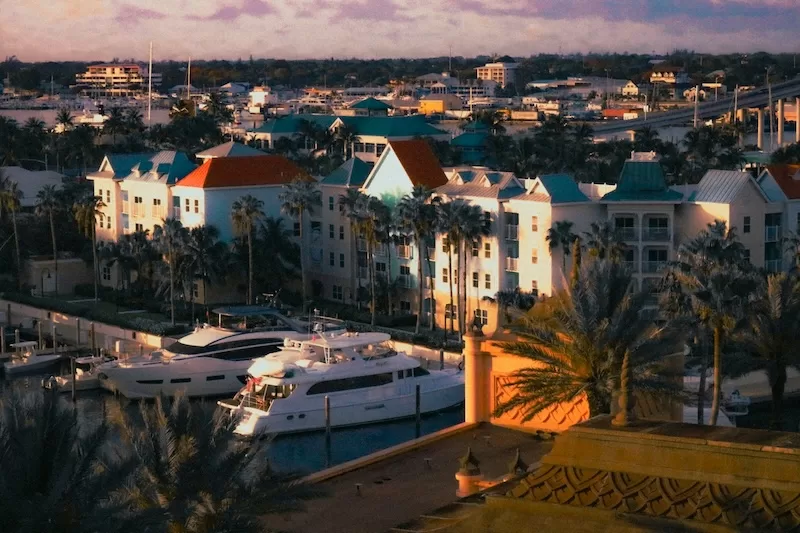
- Hurricane insurance and storm coverage
- Regular exterior maintenance, painting and rust control due to salt air
- Backup power solutions such as a generator or battery system
- Higher-priced imported furniture and appliances, or shipping costs if bringing your own
- Community fees for gated, marina or resort developments
A common pattern among comfortable retirees in the Bahamas: buying slightly under their maximum budget, then using the difference for upgrades, hurricane-proofing, and a healthy maintenance reserve.
Everyday living expenses
Owning the home is one thing. Living in it day-in, day-out is another, and that’s where “retiring in the Bahamas” turns from paradise to reality.
Let’s look at the data:
- The average cost of living in the Bahamas is roughly 39.5% higher than the U.S. average, and rent is about 14.6% higher.
- Estimates for 2025 show that a single person living modestly might spend $2,800–$4,200/month, while a family may need $6,800–$8,500/month.
- A breakdown from a cost-of-living site notes: for a family of four the figure could be about $5,253/month (excluding rent). Groceries cost more because many items are imported; utilities (electricity, air-conditioning, water) spike when you run a home in tropical conditions; transport and supplies often involve extra fees.
Here’s a concrete example. If you buy a two-bed home on a mid-sized island, take into account:
- Mortgage or purchase cost plus closing fees
- Monthly utilities: air-conditioning run for 6-8 hours/day, backup generator fuel in storm season
- Groceries: local produce helps, but much food is imported with higher price tags
- Transport: depending on the island you may need a car/ferry access, and fuel is costly
- Maintenance & insurance: coastal homes require extra upkeep
Monthly Budget Snapshot
Your monthly spending in the Bahamas depends heavily on island choice, housing style, and how much you lean into imported conveniences vs. local living. Life on New Providence or Grand Bahama feels very different from the quieter Out Islands. Use this snapshot to picture realistic month-to-month expenses.
| Lifestyle Type | Where You Might Live | Monthly Budget Estimate | What Life Looks Like |
| Modest & Comfortable | Inland or residential areas of New Providence; quieter settlements on Eleuthera | $2,800–$3,800 USD/month | A compact apartment or simple cottage, mostly home cooking, fans instead of constant AC, public beaches and local hangouts |
| Balanced & Social | New Providence near amenities; Exuma or Abaco communities with stronger services | $3,800–$5,000 USD/month | Regular beach dinners, clubs or social activities, private insurance, setting aside a buffer for imported goods and outages |
| Upscale & Active | Harbour Island, Lyford Cay, Grand Bahama’s resort neighborhoods | $5,000–$8,500+ USD/month | Marina outings, golf memberships, backup generator fuel, upgraded security and high-end housing with storm-resistant features |
A few truths from long-time retirees:
- Groceries swing in price when supply boats face delays
- AC becomes expensive fast during the hottest months
- Private healthcare insurance is worth preparing early
- Reliable transport (car, golf cart, water taxi) matters more than many expect
- Stocking a pantry before hurricane season is a budgeting tradition
Visas, Residency and Legal Requirements
The romance of retiring in the Bahamas often starts with images of pastel houses and clear shallows. The reality of staying long term is written in visa rules, residency permits and documents that decide how easily you move through airports and immigration lines.
Big-picture routes into Bahamian residency
For most retirees, the paths into legal long-term stay fall into a few main categories:
- Annual Residence Permit for financially independent people who do not work locally
- Homeowner’s Card for non-Bahamian property owners
- Permanent Residency through investment or length of stay
- Eventual citizenship, for those who want to fully naturalize and meet strict conditions
Each path has its own mix of costs, paperwork, and timeframes. Many retirees begin with property purchase plus a Homeowner’s Card or Annual Residence Permit, then step toward permanent residency once they feel certain this is their long-term base.
Annual Residence Permit
For retirees who want to live in the Bahamas long term without working for a local employer, the Annual Residence Permit is a common tool.
Core idea: you show the government that you have sufficient financial means to support yourself without local employment. In return, you receive permission to reside in the country for a year at a time, renewable.
Typical elements involve:
- Proof of steady income from pensions, investments or other foreign sources
- Bank statements showing adequate funds
- Valid passport and clean police record
- Application form and processing fee
Fees can change over time, but many sources place the cost for an Annual Residence Permit around a low four-figure amount for the main applicant, with smaller fees for dependents. The permit must be renewed each year, which means setting reminders and keeping financial documentation organized.
Who this suits well:
- Retirees renting instead of buying
- Those still testing different islands or communities
- People who prefer a lower initial financial commitment while they decide if permanent residency fits their long game
A seasoned retiree trick: keep scanned copies of all key documents on secure cloud storage plus physical copies in a waterproof folder at home. During hurricane season, that folder gets moved into a safe spot along with passports and insurance papers.
Homeowner’s Card
Retirees who already own property in the Bahamas often apply for a Homeowner’s Card. This card is not the same as permanent residency, but it certifies you as a non-Bahamian homeowner and simplifies entry and stay.
Key points:
- Available to foreign nationals who own a residence in the Bahamas
- Valid for one year, renewable
- Carries a fee per year for the primary applicant and smaller fees for spouse or dependents
- Facilitates smoother entry through immigration and confirms that you are more than a casual visitor
The Homeowner’s Card sits comfortably alongside the emotional experience of buying a house. It signals that your home is recognized officially, and that your presence there is recorded in a way that aligns with your investment.
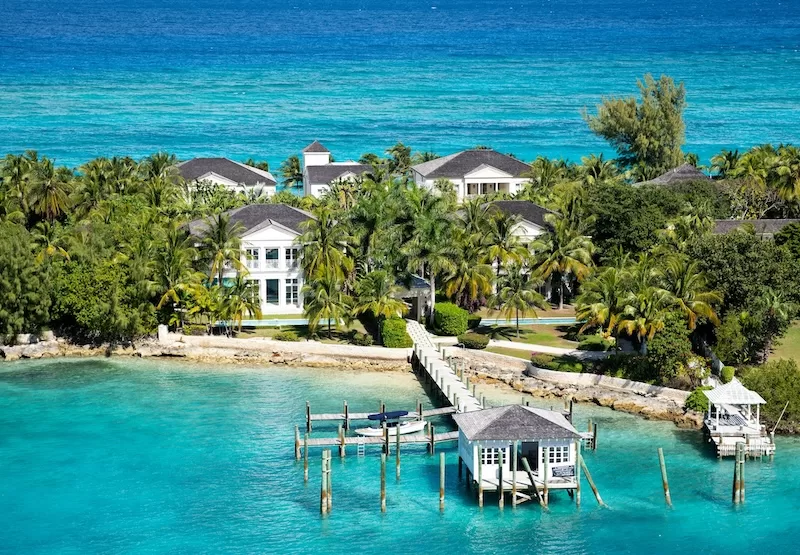
Read More Like This: 10 Reasons Why Now’s a Great Time to Buy in The Bahamas
Permanent residency
For retirees truly committed to retiring in the Bahamas, permanent residency often becomes the goal. It offers long-term security and the sense that this is no longer an experiment, but a life.
While exact rules can evolve, a common route to permanent residency involves:
- Significant investment in Bahamian property or business, often at or above a government-defined threshold
- Clean police record and satisfactory character references
- Evidence that the applicant is financially independent and not seeking local employment
Current guidelines call for a minimum investment of about $1 million USD, typically through real estate or government-approved financial assets. Whichever route you choose, the investment needs to stay in place for at least a decade, giving the country confidence that you are truly committed to island life and not just passing through.
Permanent residency typically grants:
- The right to live in the Bahamas indefinitely
- A residential status that can make many aspects of life easier, from opening local accounts to dealing with authorities
However, permanent residency is not identical to citizenship. It does not automatically grant a Bahamian passport, voting rights, or every benefit reserved for citizens.
Retirees who thrive under this status usually:
- Maintain strong ties to their financial advisors and tax professionals in their home country
- Keep clear records of time spent in and out of the Bahamas, to manage any tax-residency implications abroad
- Treat permanent residency as a stable platform, not as “the finish line,” since life events and legal frameworks can still change over time
Citizenship: the rare final step
A minority of retirees consider full Bahamian citizenship.
Key realities:
- Naturalization typically requires many years of lawful residence, often around ten years
- The Bahamas has strict rules on dual citizenship for adults, so new citizens may need to renounce previous citizenships
- The process involves applications, reviews, and formal approvals
Citizenship fits only those who are absolutely certain that the Bahamas is not just a place to enjoy retirement, but the primary national identity they want to hold. For most retirees, permanent residency covers the practical needs. It provides stability while allowing them to maintain their original citizenship and ties to their home country.
Legal and practical tips from seasoned retirees
There are a few habits shared by people who navigate Bahamian residency smoothly:
- Engage a local immigration attorney early. An experienced lawyer keeps track of current fees, processing times, and document requirements, and can help if rules shift.
- Keep every receipt and approval letter. From property purchases to utility registrations, these papers build a clean story for applications and renewals.
- Align legal status with lifestyle. For example, if you spend most of the year in the Bahamas and intend to stay indefinitely, arranging for permanent residency sooner rather than later avoids awkward transitions.
- Coordinate with a tax professional at home. The Bahamas may not tax your foreign income, but your home country might. Clear advice reduces surprises.
- Expect processing times and small delays. Island pace applies to bureaucracy too. Those who accept this mentally, build in buffer time, and apply early tend to feel relaxed.
Retiring in the Bahamas becomes much more enjoyable once visas and residency are treated like the foundation of the house. They are not the most glamorous part of the structure, but everything else rests on them.
Healthcare, Safety and Infrastructure
For someone preparing to retire in the Bahamas, medical care is a core part of peace-of-mind. Think of your health support network like the hull of a boat: if it’s weak, even calm seas eventually give way.
On the positive side:
- The public healthcare system in the Bahamas has improved notably in recent years, and English-speaking staff across major hospitals make it easier for retirees from the U.S., Canada or UK to navigate.
- Major hospitals include:
- Princess Margaret Hospital (PMH) in Nassau, the largest public acute-care hospital in the Bahamas.Doctors Hospital (private, Nassau) offers more specialized services and modern facilities.
- Rand Memorial Hospital in Freeport, Grand Bahama, key for northern islands outside New Providence.
But there are important caveats:
- The public system may handle general services, but many retirees prefer private insurance that grants access to private hospitals.
- Some treatments (complex surgeries, very advanced diagnostics) may require evacuation to the U.S. or specialized facility abroad.
- For islands outside the main centers (Nassau/New Providence) you may need to travel for advanced care, so your chosen location should factor in proximity to hospitals.
What to check when you’re retiring in the Bahamas
- Confirm if your health insurance from home covers you overseas or if you’ll need a local private plan.
- Visit the hospital in your chosen area. Feel the waiting rooms. Ask about ambulance services, ICU capacity and the nearest full-service hospital.
- Factor in transport logistics: ambulances, flights, boat transfers. On smaller islands, time to care can increase during storms or rough seas.
- Include a contingency fund in your budget for medical transport or emergency evacuation. It’s a realistic line item, not insurance paranoia.
Safety, natural-hazard risk and transport links
Life in the Bahamas shows you how easy it is when things go smoothly and how important it is when they don’t. Retiring here means taking good days as a given. Handling the harder ones makes the difference.
Safety and community
Crime statistics on major islands show a downward trend in major incidents in recent years, and many retirees report feeling safe in neighborhoods past 5 pm. Still, as in any country, the difference between “safe” and “secure” is pre-planning: your property, your travel, your schedule should be aligned with local norms (lock up gear, factor in storm warnings, avoid isolated roads after dark).
Natural-hazard awareness
Hurricane season (June-November) is real. Retiring in the Bahamas means budgeting for shutters, elevated foundations, insurance, and extra supplies. Homes become not just places to live but storm-ready containers.
Transport and infrastructure
- Most retirees rely on a personal vehicle for daily movement. Cars and fuel cost more due to import and shipping expenses, but they offer independence, especially on larger islands.
- Golf carts can be a practical option in specific communities designed for them, though they are not a universal substitute for a car.
- Major international airports (e.g., Nassau) give connectivity to the U.S., Canada and beyond.
- On smaller islands you may depend on ferries or small airports; delays or cancellations happen during bad weather.
- Utilities: electricity and water in the Bahamas are reliable in many places, but the cost spikes when AC, dehumidifiers and back-up systems are running.
- Internet & banking: In well-populated islands you’ll find fast service; in remote cays you may face more “island time” versions of service. When retiring in the Bahamas, strategize for “what if the power goes out for 24 hours” scenarios.
Practical “retiring in the Bahamas” checklist for infrastructure & health
- Choose your island with care: make sure you’re within a short drive or ferry of a major hospital (e.g., Princess Margaret or Doctors Hospital) if you have chronic health needs.
- Visit the hospital, talk to staff, see how emergency transport works from your chosen location.
- Budget for upgraded stormproof home features and home-owner’s insurance.
- Ensure you have local bank access, reliable internet and a set of local service contacts (plumber, generator technician, doctor) before you unload boxes.
- Account for healthcare costs: even with public services, private care and insurance will often be the standard for retirees. Factor this in alongside your monthly budget.
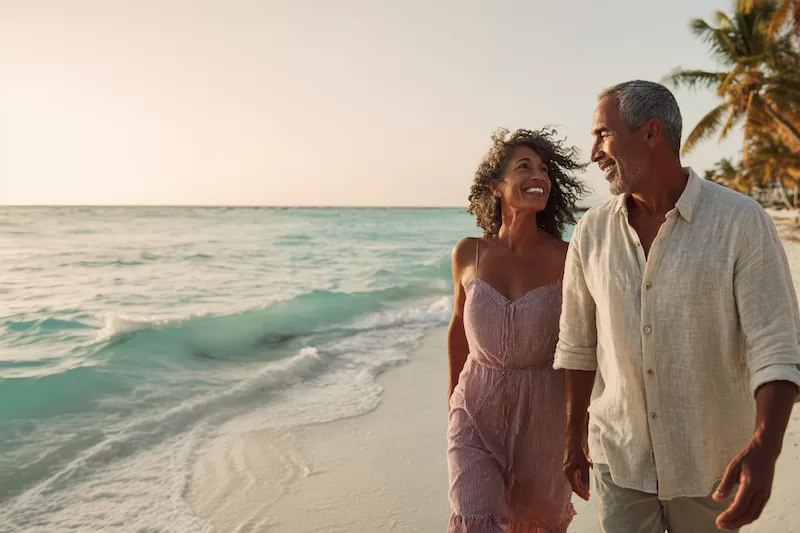
Lifestyle and Location Options
Retiring in the Bahamas carries many possible shapes. Some people feel most alive when they can walk to a café and chat with neighbors. Others want a porch that hears more seabirds than engines. The archipelago offers both, and versions in between. These five destinations are where retirees often feel their new life sharpen into focus.
1. Nassau & New Providence
Best For: Retirees who want convenience, healthcare access, and city energy balanced with beach life.
What Makes It Retiree-Friendly: Major hospitals, international airport, familiar goods, English-language ease, and plenty of dining and entertainment.
New Providence is the Bahamas’ everyday engine. Groceries, doctors, pharmacies, banks, and hardware stores all sit within short drives. Morning errands can feel quick and satisfying: a pharmacy beside your market, a bank a few doors down. Ease is the theme.
Walkable waterfront paths and marinas give shape to your afternoons. Beaches slot into weekly routines without needing long drives. Conversations after yoga class often tilt into dinner invitations. You feel part of a place that knows how to work and relax in the same breath.
Upscale pockets, like western New Providence or Paradise Island next door, add polished amenities: golf, pools, tennis, concierge services, and high comfort living. They create smooth landings for retirees who want to enjoy island life without daily friction.
Trade-off: urban presence and elevated levels of tourism comes with higher housing prices and busier traffic. But for those who want culture, good healthcare nearby, and island scenery without sacrificing convenience, Nassau lets retirement feel structured and full.
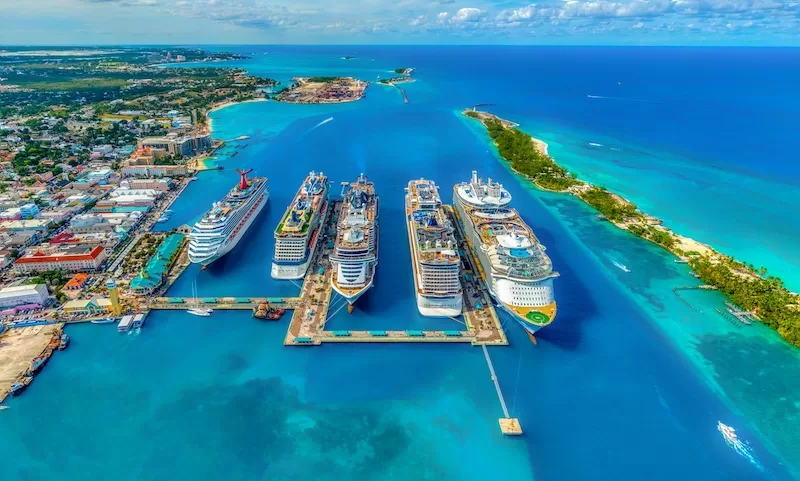
2. Grand Bahama
Best For: Retirees who want true island life with amenities and infrastructure, but less crowds than the capital.
What Makes It Retiree-Friendly: International airport access, good roads, established expat communities, and solid services without metropolitan rush.
Grand Bahama’s days run slower. Instead of city buzz, mornings revolve around beaches, harbors, boat ramps, and familiar island cafés. Groceries and pharmacies feel reachable without a long journey. It is the kind of place where you learn names quickly and neighbors check in after storms.
The convenience adds up: flights to the U.S. are close, the hospital is within reasonable distance, and the local circle already includes retirees who know how to get things done. You can enjoy a calmer daily rhythm while still having a safety net nearby.
Trade-off: some neighborhoods feel remote from the action, and life depends heavily on local supply routes.
3. Eleuthera
Best For: Retirees seeking a softer pace, local character, and nature that sets the daily rhythm.
What Makes It Retiree-Friendly: Friendly communities, low-stress living, closeness to beaches, and space to breathe.
Eleuthera trades bustle for breezes. It is long, slender and relaxed: small grocery stores, beach paths shaded by palms, and porch conversations that stretch past sunset. People know each other. Dogs know each other. Your go-to bakery might live inside someone’s cousin’s converted house.
Life feels simple in the most reassuring way: morning walks before heat builds, weekly markets for fresh fish and produce, and sunset rituals that are treated as part of health care. This is a place where a retiree’s shoulders drop after decades of daily rushing.
Trade-off: fewer specialists and advanced medical facilities. Getting to Nassau for certain appointments becomes part of the plan. For those ready to trade convenience for community and calm, Eleuthera delivers peace most days.
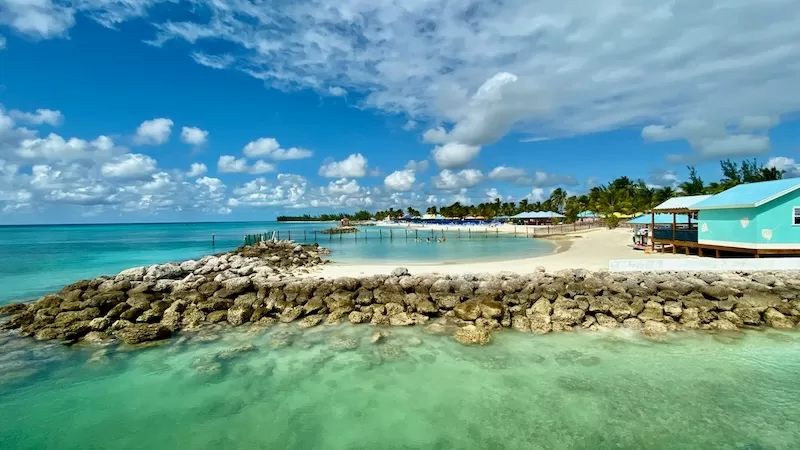
4. Exuma (Great Exuma & Exuma Cays)
Best For: Retirees who want water at the core of their lifestyle: boating, swimming, sunning, and minimal errands.
What Makes It Retiree-Friendly: Gorgeous beaches, boating culture, networks of long-term expats, and a vibe that prioritizes wellness.
Exuma feels like waking up in a postcard you somehow earned a permanent role in. Boats bob in teal water. Market runs are small and frequent, often ending in a chat. Social life happens outdoors: sandbars, docks, beach grills, starwatching under skies that look unreal.
Homes tend to be ocean-facing or ocean-near. Days fill themselves: a neighbor knocks asking if you want to join a beach picnic; someone needs a hand tying off a boat line. Retirement becomes a string of simple pleasures.
Trade-off: limited healthcare and higher import costs require foresight. For retirees who already picture a life marked by tides instead of timestamps, the reward feels worth it.
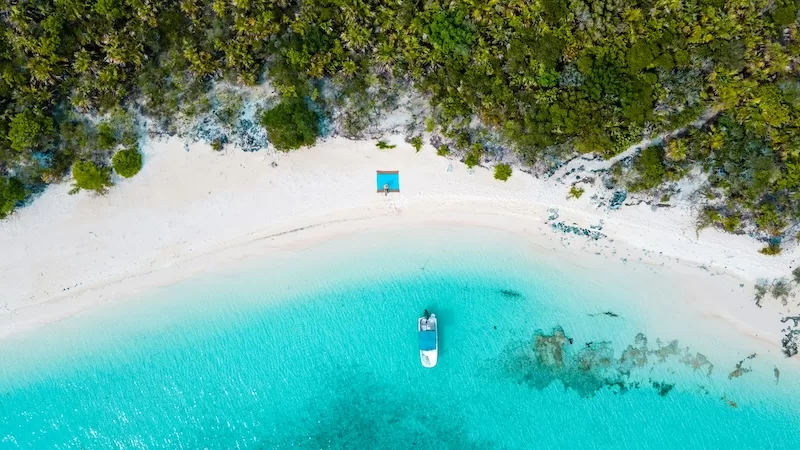
5. Paradise Island & Western New Providence (Upscale Pockets)
Best For: Retirees who want security, resort-style amenities, and immediate social circles in polished communities.
What Makes It Retiree-Friendly: Gated developments, marinas, golf courses, clubhouses, curated activities, and high comfort close to the capital’s services.
Imagine walking from your home to a private beach with chairs waiting for you. Your neighbors play tennis at 9, and happy hour might happen on a rooftop overlooking sailboats. These areas were designed to make the choice easy: you arrive and life offers a menu.
Concierge services and maintenance teams reduce stress, especially during storms. Social life forms fast: book clubs, dining groups, pickleball leagues. Convenience is engineered into daily living, creating a feeling of secure ease.
Trade-off: higher price points and a lifestyle that leans toward resort-polish rather than embedded local culture. But many retirees feel they earned the right to choose comfort.
Pro Tip: Visit at least two islands or neighborhoods before you commit. Spend two or three weeks in each. Eat where residents eat. Drive the roads at night. See how you feel when the grocery has fewer imports one week. The right place always reveals itself once you live the rhythm rather than observe the scenery.
Read More Like This: The Bahamas Through The Eyes Of A Transplanted American
Culture, Language and Community Integration
In the Bahamas, national culture blends West African, Caribbean, and British influences into something unmistakably Bahamian. Junkanoo drums echo through city streets, fishermen clean their day’s catch at the docks, and social ties feel as important as sunshine and salt air.
English as the official language smooths the move for many retirees. You can handle a doctor’s appointment or chat with your bank without pausing to translate. But embracing the local cadence of speech, the easy humor, and the neighborly back-and-forth is what pulls a newcomer into the fabric of Bahamian life. A warm “Good morning” exchanged on the street carries more weight here than a rushed hello ever did back home.
Community happens in casual, familiar spaces. Not only in gated developments or behind resort walls. It thrives at the fish fry on a Friday night, during dominoes games under a shade tree, in quick conversations with the person in line ahead of you at the market. Those who adapt best describe the transformation clearly: the moment they stop watching the Bahamas as scenery and start participating in it.
There is usually a rhythm to integration:
- The honeymoon stage: Every breeze feels like a postcard. Everyone seems friendly. Your camera never leaves your hand.
- The adjustment stage: Slower service, supply delays, quirks in how things get done. You learn patience because the island keeps teaching it.
- The belonging stage: You have a favorite bakery. Someone holds your spot in the grocery line. You wave at faces you know, and your name appears on a neighborhood WhatsApp group before hurricane season.
That third stage is where retiring in the Bahamas stops feeling like escape and starts feeling like home. The trade for less anonymity is deeper connection. People look out for one another. Small kindnesses circulate. That is the real luxury.
Pro Tip: Join something early. A boating club, a church choir, a fitness group on the beach, a volunteer day at a community center. These circles become your social life and, when needed, your first line of help during storm season, unexpected repairs or sudden medical needs. A social circle is not found. It is built.
What to prepare before you move
Turning retiring in the Bahamas into a real move means more than shipping boxes and buying flip-flops. Preparation sets the tone for the first year, and the first year sets the tone for everything after. Long-time expats often say the easiest way to love island life is to arrive ready. Ready for the ease. Ready for the quirks. Ready for the parts that do not show up on postcards.
Think of this section as the bridge between imagining the move and unlocking the front door of your new home.
Build a timeline
Most retirees who transition well follow a three-stage glide path:
Stage 1: Research and planning (3 to 12 months)
- Pick top two islands or communities to test
- Speak with a local immigration attorney about visas
- Compare healthcare options
- Narrow down housing to a realistic price range
- Confirm financial documentation for residency applications
Stage 2: Trial stay (1 to 3 months)
- Live in the exact type of home you expect to rent or buy
- Track expenses daily (groceries, AC, repairs, transport)
- Meet neighbors and service providers
- Visit the nearest hospital and learn how emergencies work
- Decide if the lifestyle feels effortless enough to enjoy long-term
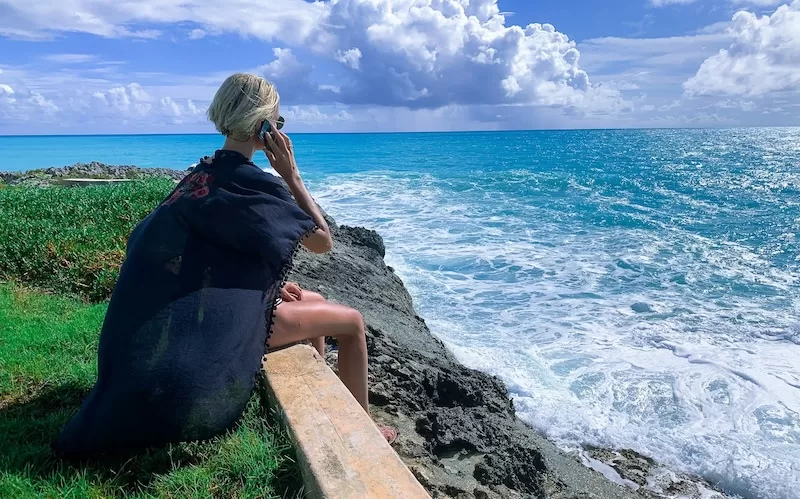
Stage 3: Commitment (move within 6 to 18 months)
- Purchase or long-term lease the home
- Submit residency permit application
- Transfer key services into your name
- Build your local support network intentionally
Financial and paperwork checklist
Retiring in the Bahamas rewards those who keep their documents neat and their financial picture clear. Create a folder labeled “Island Life: Critical Stuff” and fill it with:
Money and banking
- Proof of income or pension statements
- Documented savings for living expenses
- A relationship with a Bahamian bank before arriving full-time
- An emergency reserve set aside for medical or storm events
- An accountant review of tax obligations from your home country
Residency and legal
- Passport valid for 6+ years
- Police clearance from your home country
- Marriage certificate (if applicable)
- Property deeds or signed lease for Homeowner’s Card or residency permit
- Digital backups stored securely in the cloud
Insurance
- Comprehensive international or regional healthcare coverage
- Hurricane and flood insurance for your home
- Insurance for vehicles or boats if relevant
Lifestyle essentials to set up early
Utilities and tech
- Backup power (generator or battery system)
- Surge protectors for electronics
- Reliable internet service, tested at peak evening hours
- A local SIM card for communication during outages
Home comforts
- Dehumidifiers to protect furniture and clothing
- Strong fans to reduce AC use
- Pest control scheduled regularly
- Water storage containers for unpredictability during hurricanes
- A small toolkit for salt-air repairs
Medical readiness
- Confirm prescriptions can be filled locally
- Keep a 60 to 90 day buffer of medications
- Locate the nearest clinic and emergency routes
- Build a contact list of doctors, specialists, and emergency taxis
A retirement built entirely inside your home gets lonely fast. Social planning matters just as much as legal paperwork.
Start with:
- A hobby group or sports club
- Volunteer work with community organizations
- Weekly routines: Sunday markets, Wednesday trivia, Friday fish fry
- Phone numbers of neighbors who know the island well
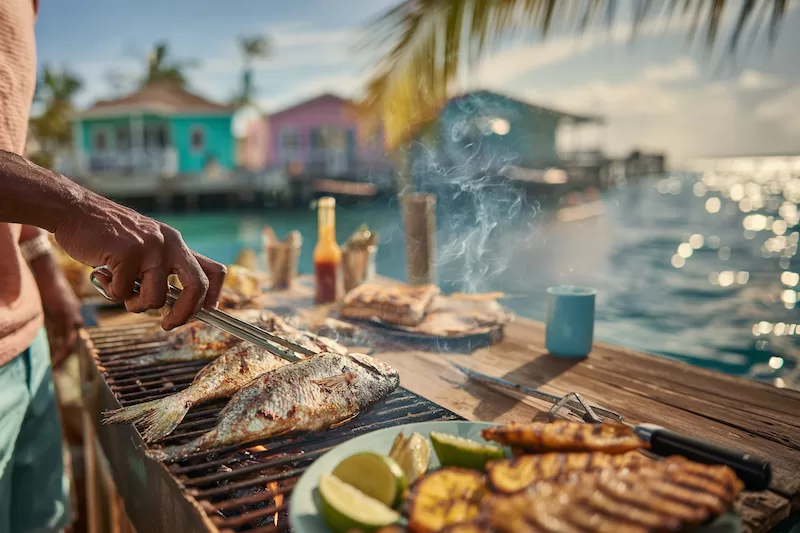
The emotional transition nobody prepares for
Every move to the Bahamas comes with at least one moment where you ask yourself what you just did. It might happen the first time the power flickers for hours. Or when your grocery list turns into a treasure hunt because the boat is late. Or when homesickness sneaks in while everyone else seems relaxed.
Experienced retirees share a common insight: lean in. Laugh with locals when life tilts sideways. Ask for help. Remember why you came.
The payoff arrives gradually. One morning you wake up, hear roosters instead of sirens, and realize your life has become simpler to manage in all the right ways.
Pro Tip: Create a “First 90 Days” guide for yourself. Include:
- The people you will call for help
- The places that already feel comforting
- Monthly budget goals
- One adventure per week
- One new social invitation to accept each month
The move becomes less about uprooting and more about rooting in.
FAQs
Q1. What kind of income do I need to retire in the Bahamas?
You will not find a published minimum income figure specifically for retirees. However, when applying for a residence permit you must show you can support yourself without local employment. It’s wise to demonstrate a stable income or savings that comfortably cover your housing, healthcare, utilities and lifestyle.
Q2. Will I be taxed on my pension, investments or retirement income in the Bahamas?
No. The Bahamas imposes no personal income tax, no capital-gains tax and no inheritance tax on foreign-sourced pensions or investments for residents. (You still should check your home-country tax rules.)
Q3. Can I bring my home country’s social security or pension payments to the Bahamas?
Yes. You can receive your overseas pension, social security or investment income in the Bahamas and such income will not be taxed locally. You must still meet any tax obligations in your home country.
Q4. How do I include my spouse or partner in the move?
If your spouse is a Bahamian citizen there is a specific “Resident Spouse Permit”. If you both are non-Bahamian and moving together you will typically apply for a residence permit that allows dependents (spouse and minor children) to be included. You’ll need to prepare marriage certificates, proof of dependence, and pay applicable fees.
Q5. What are the hidden or underestimated costs I should plan for as a retiree?
Many retirees are surprised by constant costs such as higher-priced imported groceries, elevated utility bills (especially for cooling and dehumidifying), maintenance and insurance for a home in a tropical climate, and costs tied to hurricane-proofing and storm readiness.
Q6. How strong is healthcare for retirees, and what should I ensure before moving?
Healthcare varies by island. Major centers like Nassau and Freeport offer private and public hospitals. But for retirees it’s wise to carry private international insurance (including medical evacuation) and verify the nearest full-service hospital, specialist care, and how quickly you can reach it.
Q7. Which islands or communities are best for retirees in the Bahamas?
There is no one-size-fits-all answer. Larger islands like New Providence (Nassau) or Grand Bahama offer strong infrastructure and services. Smaller islands or “Out Islands” can offer a quieter, more relaxed pace with trade-offs in medical access or supply logistics. Match your priorities—services vs. solitude.
Q8. Is dual citizenship possible if I naturalize in the Bahamas?
In most cases new adult citizens may need to renounce previous citizenships because the Bahamas generally does not allow dual citizenship for new adult naturalizations. Citizenship is a long-term process, often requiring years of residency.
Q9. How safe is retirement life in the Bahamas?
Many retirees report feeling safe in well-populated communities in the Bahamas and crime rates have declined in several areas. Nevertheless, safety still depends on choices: selecting a neighborhood with good lighting, staying close to services, and building local awareness.
Q10. What about my checklist for the first year of retirement in the Bahamas?
Your first year should focus on three things: (1) establishing a budget based on actual costs, (2) building your local network (neighbors, service providers, doctor), (3) locking down your residence status and home setup. Use the first few months to test your routine and make adjustments, as this phase often defines whether the move feels smooth or stressful.
Your Island Years, Thoughtfully Designed
Retiring in the Bahamas begins as a vivid dream. Warm mornings that start with light through open shutters. The clatter of fishing boats heading out before sunrise. But a permanent move turns into a real life only when based in solid preparation. A beautiful view needs a budget behind it. A relaxed stride still relies on smart decisions about healthcare, home readiness and the logistics of island living.
The Bahamas welcomes retirees who arrive with both excitement and a clear-eyed understanding of what daily living will cost and provide. They offer a rare combination of English-speaking community, tax-friendly financial life, and the ability to shape your days around nature instead of a calendar. Still, they also expect foresight: strong housing choices, healthcare access mapped out ahead of time, budgets that respect the realities of imports and storm seasons, and the patience to let island rhythms become your new normal.
Once you settle in, life reveals its richness slowly but fully. You wake up one morning and realize the Bahamas is not your escape anymore. It is simply home.
If this feels like the life you have earned, stay connected. Subscribe to our newsletter building brighter and better-designed retirements abroad. No hype. No guesses. Just practical tools, fresh insights, and lived experience guiding every step.
Your island chapter can begin with clarity and purpose. Let’s make the move smarter, easier, and entirely your own.
Contact Author
"*" indicates required fields
Stay Ahead on Every Adventure!
Stay updated with the World News on Escape Artist. Get all the travel news, international destinations, expat living, moving abroad, Lifestyle Tips, and digital nomad opportunities. Your next journey starts here—don’t miss a moment! Subscribe Now!
